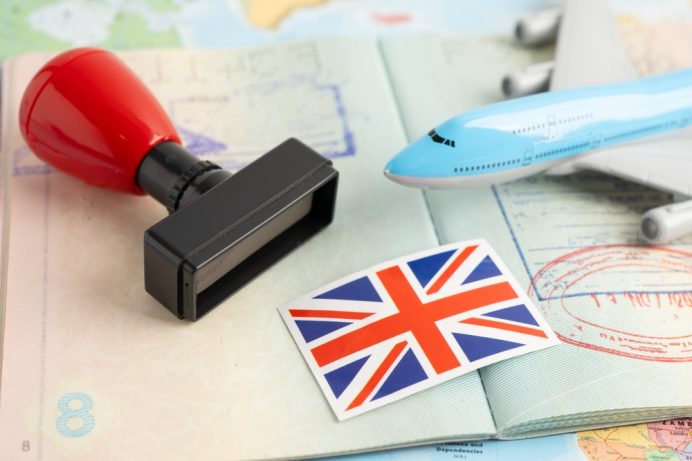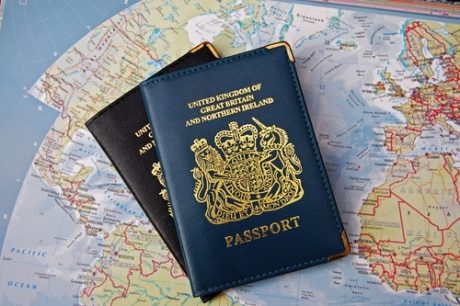Every year, the UK’s Foreign, Commonwealth and Development Office (“FCDO”) supports thousands of British nationals who encounter difficulties when abroad.
The 2022 Consular and Crisis Strategy review showed the FCDO had supported around 20,000 to 25,000 British nationals and their families, including approximately 4,500 who had died abroad and 4,000 who were hospitalised. Statistics released by the FCDO for July 2023 show that it had supported over 30,000 British nationals with consular telephone enquiries following hospitalisation abroad.
What are the legal rights for British nationals abroad?
There is currently no legal right to consular assistance for British nationals and their families who turn to the FCDO in a time of crisis overseas.
In 2019, the APPG on Deaths Abroad, Consular Services and Assistance called for the introduction of a legal right to consular assistance and for changes to be made to how the FCDO collaborates with other organisations. The APPG wanted to encourage more effective signposting for British nationals to access support where the FCDO is unable to provide what is required due to the understandable limitations on its resources and the scope of its remit.
The APPG report found that many changes were required to the services provided to British citizens upon death or serious injury overseas, including legislation. In her forward to the APPG report, former MP and chair Hannah Bardell, a passionate lobbyist for victims’ rights, commented: “We owe it to these families and the loved ones they lost to learn lessons and make common sense and necessary changes.”
In addition to enshrining a right to consular assistance into UK law, the APPG recommended improvements in the practical support for families, with a commitment to signposting to relevant agencies and establishing new relationships with specialist support organisations.
Stewarts International Injury partner Chris Deacon was quoted extensively at the time of the APPG report, commenting on the issues families can sometimes face when trying to find legal representation following a catastrophic incident overseas. Chris noted: “Whilst the FCO no doubt has the best intentions in trying to signpost Brits to local lawyers, there is no quality control on the lists of foreign lawyers given to bereaved families or seriously injured Brits whatsoever – we know through tried and tested relationships who to turn to in foreign jurisdictions to ensure families get the very best representation.”
The report continued: “In our discussions, Stewarts recognised that the FCO understandably (like most government departments) is restrained by its limited resources; it was with this in mind that it made proposals to implement a system of signposting to UK based lawyers for bereaved families or seriously injured British Nationals following an accident overseas.”
What happened to the 2024 Private Members’ bill seeking to legislate for a right to consular assistance?
Building on the recommendations of the APPG’s report, on 28 February 2024, Liberal Democrat MP for Edinburgh West, Christine Jardine, introduced a private members’ bill to the House of Commons with the aim of legislating to make provision for a right to consular assistance for British citizens abroad in cases where there has been or where there is a risk of a breach of human rights, denial of access to legal representation or torture or other human rights abuses and for connected purposes. With the appropriate refinements as this bill made its way through parliament, it had the potential to ensure signposting to appropriate legal representation for the victims of accidents abroad and their families. Progress of this bill has since stalled due to the 2024 general election.
Christine Jardine’s private members’ bill followed a report in January 2024 by the human rights charity Redress. The organisation also called for a legal right to consular assistance, informed by its work supporting British nationals who are detained abroad and at risk of (or subject to) human rights abuses, including torture. Redress’s report, “Protecting British Nationals From Human Rights Violations”, noted that a legal right to consular assistance would benefit the British state by offering a structured approach to the protection of its nationals and would ensure that British values are respected, even beyond our borders. Arguably, the right to consular assistance goes further than protecting British nationals; it also has the potential to facilitate the enforcement of the rights of victims, including those involved in life-changing accidents abroad.

How would a legal right to consular assistance better support British nationals following death or serious injury abroad?
A legal right to consular assistance would ensure that British nationals involved in catastrophic incidents overseas are appropriately supported. This includes signposting to suitably qualified professionals, notably when the victims return home to the UK for ongoing support and advice, including legal representation.
Many of the tens of thousands of cases where the FCDO provides consular support each year will be due to a catastrophic accident, causing death or serious injury. In these situations, the victims and their families would be best supported by early, specialist and holistic legal advice and assistance.
The FCDO has done much work as part of its strategic reviews, and it has committed to collaborating with other organisations in complex cases and improving its approach to signposting to specialist services. The FCDO now expressly recognises that, where it can, it will “… direct people to other existing support, including online information provided by the FCDO, or where assistance can be better provided by another organisation such as a host government, a travel company or insurance company”.
As things stand, however, the FCDO’s policy does not include signposting to specialist law firms in the UK and professional associations of lawyers such as The Law Society, APIL or PEOPIL. The FCDO’s approach is to maintain a list of local lawyers, which it may signpost individuals to where it is thought legal advice may be needed. The difficulty with this approach is that it does not necessarily result in the appropriate, specialist legal advisors being appointed in the best interests of those affected by an accident abroad. Consequently, the position on signposting to legal advice following a catastrophic incident abroad remains uncertain, with a patchwork of support depending on the country in question and a system that relies on individuals consulting the list of local lawyers maintained by the FCDO.
Empirical evidence shows that victims of major accidents abroad and their families are likely to secure outcomes that better promote their best interests by seeking input from a lawyer in their home country. Often, the victims and loved ones impacted by a cross-border catastrophic incident resulting in death or serious injury will benefit from global coordination of their needs, which UK-based lawyers will have the skills and connections to put in place.
With the election of a new Labour government in July 2024, there is an opportunity to review and refresh the FCDO’s policy on signposting to legal advice and support for British nationals following a catastrophic incident abroad. A new approach can build on the existing framework, maximise government resources and achieve the best outcomes for the victims of serious accidents abroad, their families and loved ones.
Find out more
You can find further information regarding our expertise, experience and team on our International Injury page.

Subscribe – In order to receive our news straight to your inbox, subscribe here. Our newsletters are sent no more than once a month.


